This 26-Year-Old Girl Dropped Her UK University Seat To Make Andaman Waste-Free!
With five beach cleanups and innumerable awareness programmes, The Kachrewaale Project is changing the way Andaman Islands is handling its waste.
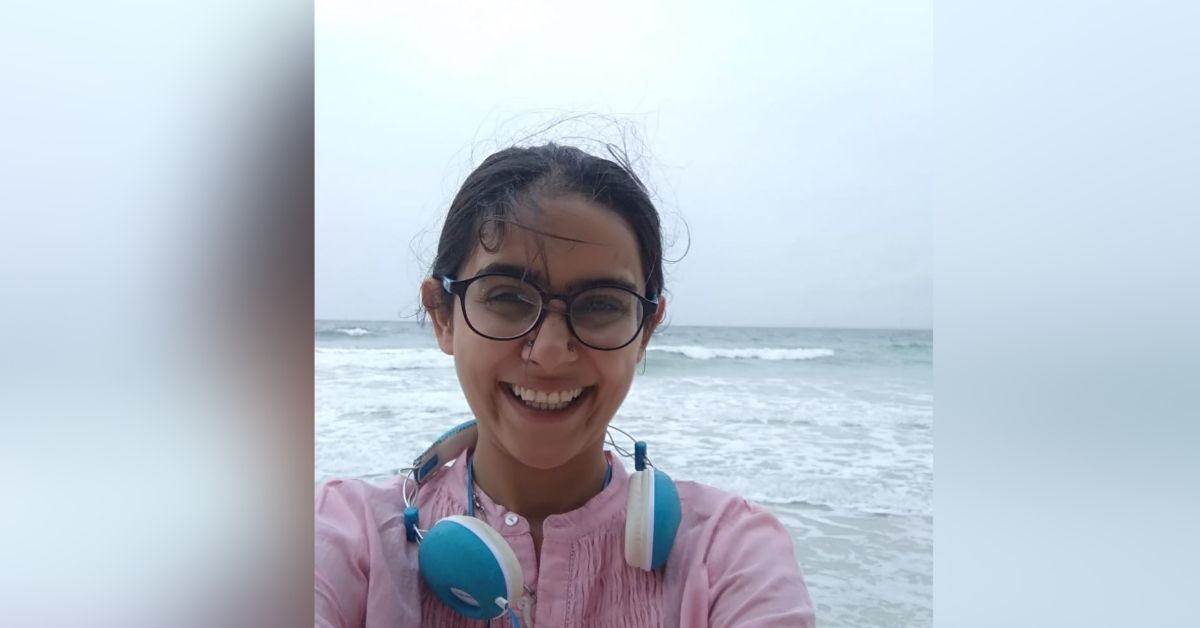
This article is part of #IndiansAgainstPlastic series. The Better India and Karnival.com are recognizing 5 heroes who are ensuring the fight against plastic is a battle to the finish, leading to a #PlasticFreeIndia
What would it take for you to dedicate one day in making this world a better place?
Sleep, an extra effort, a few hours, one responsible move?
For Garima Poonia, it cost her dream university!
Her wish to pursue a Master’s in Development Studies from a prestigious University in the UK took a back seat since she embarked on a mission to make one of the Andaman Islands waste-free.
In 2017, when she visited the Neil Island with her parents to undertake a scuba diving course, it pained her to see the majestic island covered in trash.
Describing her first visit to the island, she tells The Better India,
I saw a lot of trash like bottles, fishing nets, and broken plastic items on the beaches; these primarily came from the ocean. I saw how most resorts and households were burning garbage in the open. I kept thinking about the beautiful marine life I had seen during my scuba course, and how it is affected by all this trash. And the fact that in the absence of a Solid Waste Management system, these islands were getting dirtier.
The island, which is less than seven kilometres long, is home to 4,000 locals and a migrant population of about 1,500. As per The Times of India, commercialisation and tourism on the island have risen in the last couple of years, contributing to an increase in waste generation.
Adding to that, getting the trash off the island is difficult. Moreover, the island does not have any recycling facility.
Thus, the waste is either burnt, further polluting the air, or dumped on trenching grounds.
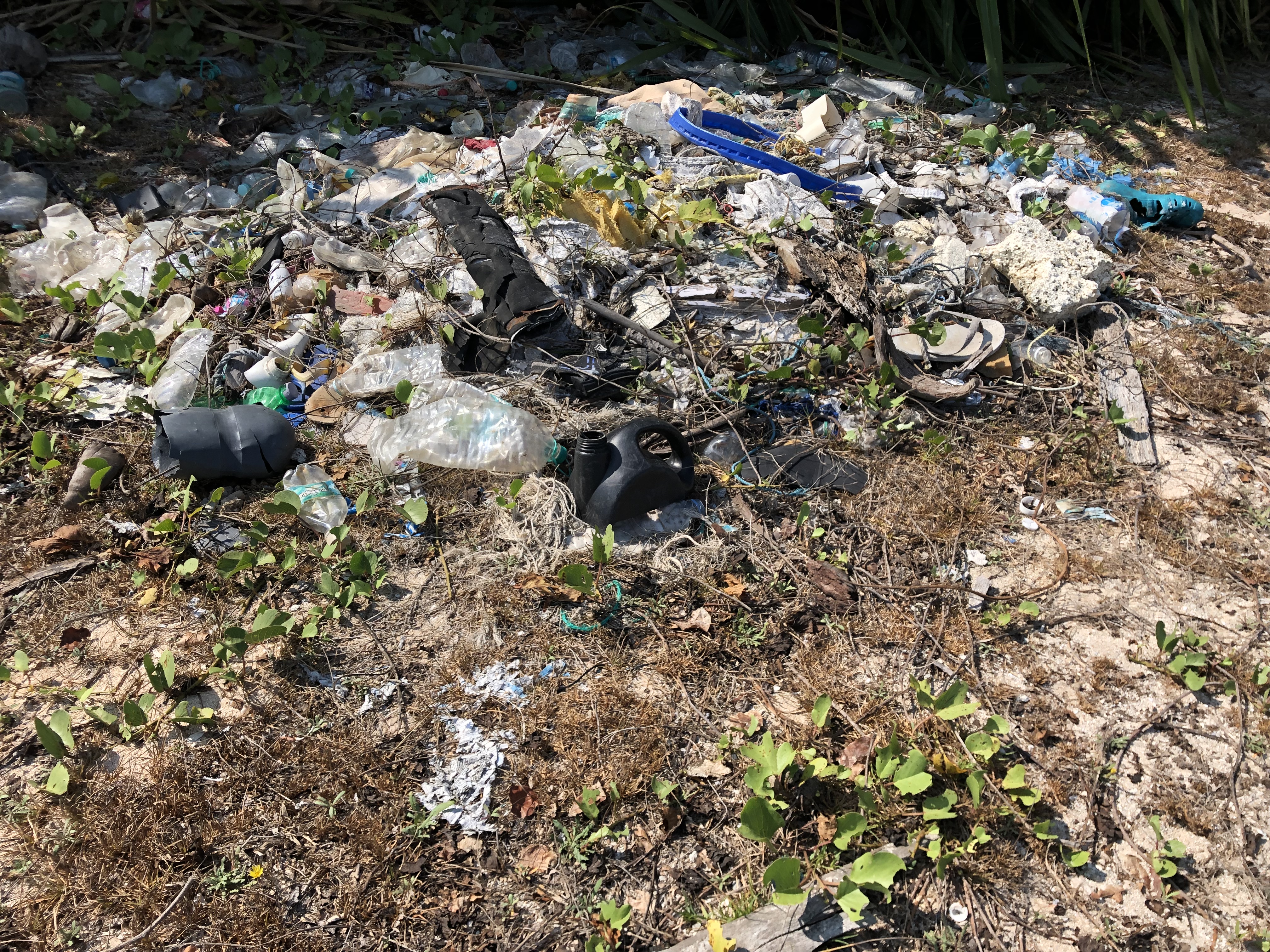
“Waste segregation is the real challenge, and it is the most important thing to do because resorts are the primary generators of waste. Such a small island has 42 resorts registered, some of which are big, the kind you would find in cities. Unless resorts segregate their waste, Neil Island and other tourist islands are going to drown in their own waste,” she says.
Though Garima returned to her life, she kept thinking about how waste was ruining the pristine island; and she couldn’t sleep for days.
Having worked in the waste management sector in the past, she was aware of the environmental repercussions and decided to do something about it.
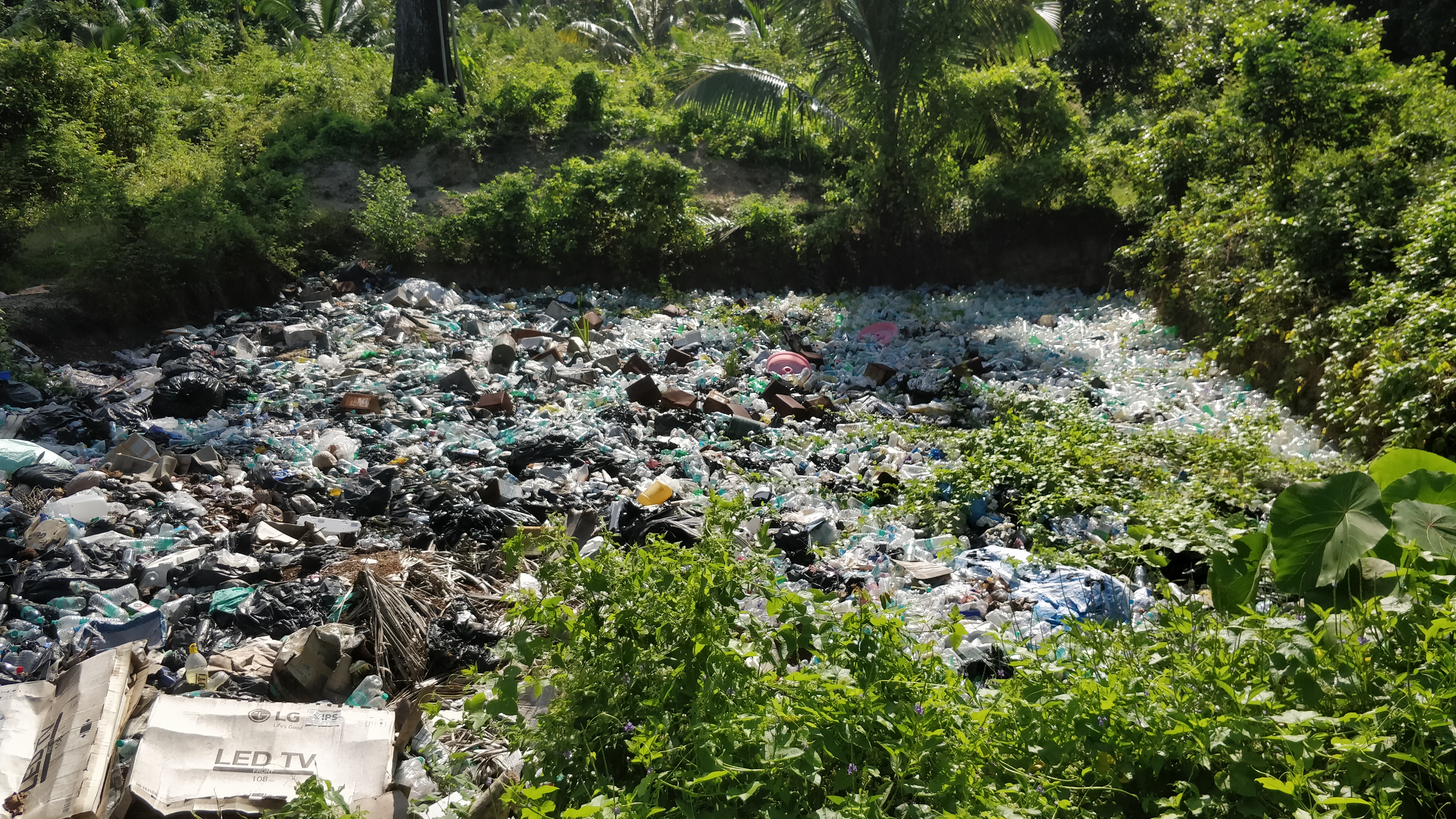
It was at the same time when she secured admission at Sussex University. She shares, “It was a tough call. I cannot explain it, but in my heart, I wanted to make a difference to the island.”
During one of her jobs, she had worked with waste pickers. Their plight is also one of the reasons behind Garima’s efforts to reduce waste at the source.
Waste pickers from the lower rungs of society rummage through garbage, putting themselves at risk, daily. By segregating waste, we can make their work environment less toxic, she says.
The Beginning of a New Journey

Moving to a place which lacks phone connectivity and faces internet issues was a challenge for Garima. She knew no one on the island and was all alone. “It was like a journey into the unknown, I had no idea what would happen,” she recalls.
Her first step was to earn a decent living.
While Benny Jacob, Manager, Emerald Gecko (a resort), gave her accommodation and food, Mohammed Jadwet, owner at a Logistical company, gave her a job at a local magazine.
Once her finances were sorted, she undertook a household survey with help from the local municipal department. She elaborates, “The agenda behind the survey was to understand how locals handled their waste. Most of them were willing to segregate if a vehicle could pick up the waste daily.”
For the next two months, she visited every resort, Local Panchayat, and diving community to spread awareness.
“More than funds, getting the right volunteers was my concern. I wanted equally passionate people who could dedicate their time and effort to the cause.”
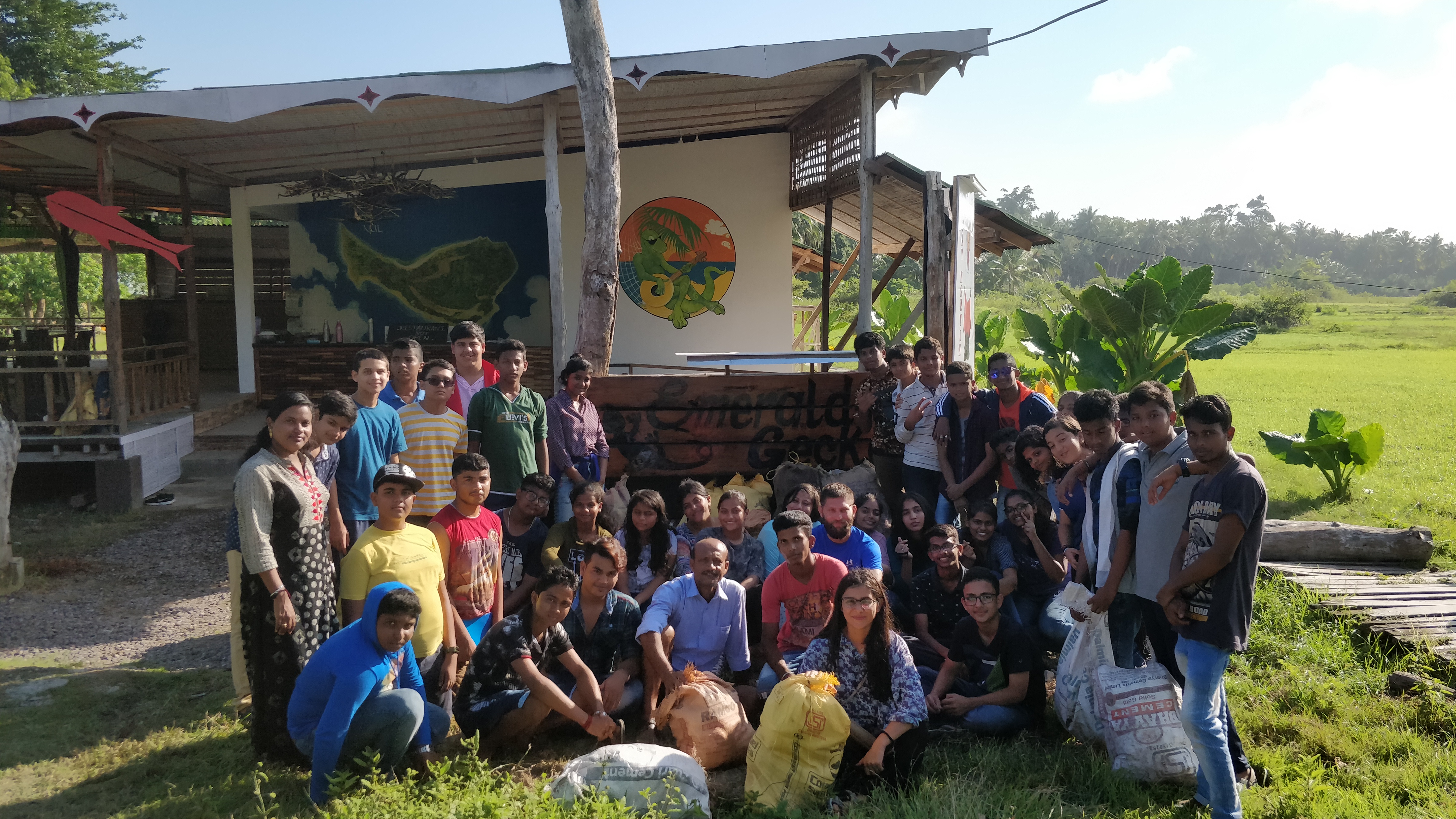
In December 2018, Garima organised the first cleanup drive along with a Waste Management and Conservation Workshop. Vinit Doshi, who came armed with experience in conversation projects, was her partner in the workshop and educated the volunteers about wildlife and marine life. He continues to be an integral part of the project.
Around 33 children participated and collected 100 kilos of trash, which was taken to Port Blair. The Director, Shipping Services, made it possible for the waste to be transported to Port Blair (PB) in one of the government passenger ferries that go to PB from Neil everyday.
As for volunteers, around 80 people have been associated with Garima’s Kachrewaale Project, mostly tourists and folks from the diving community.
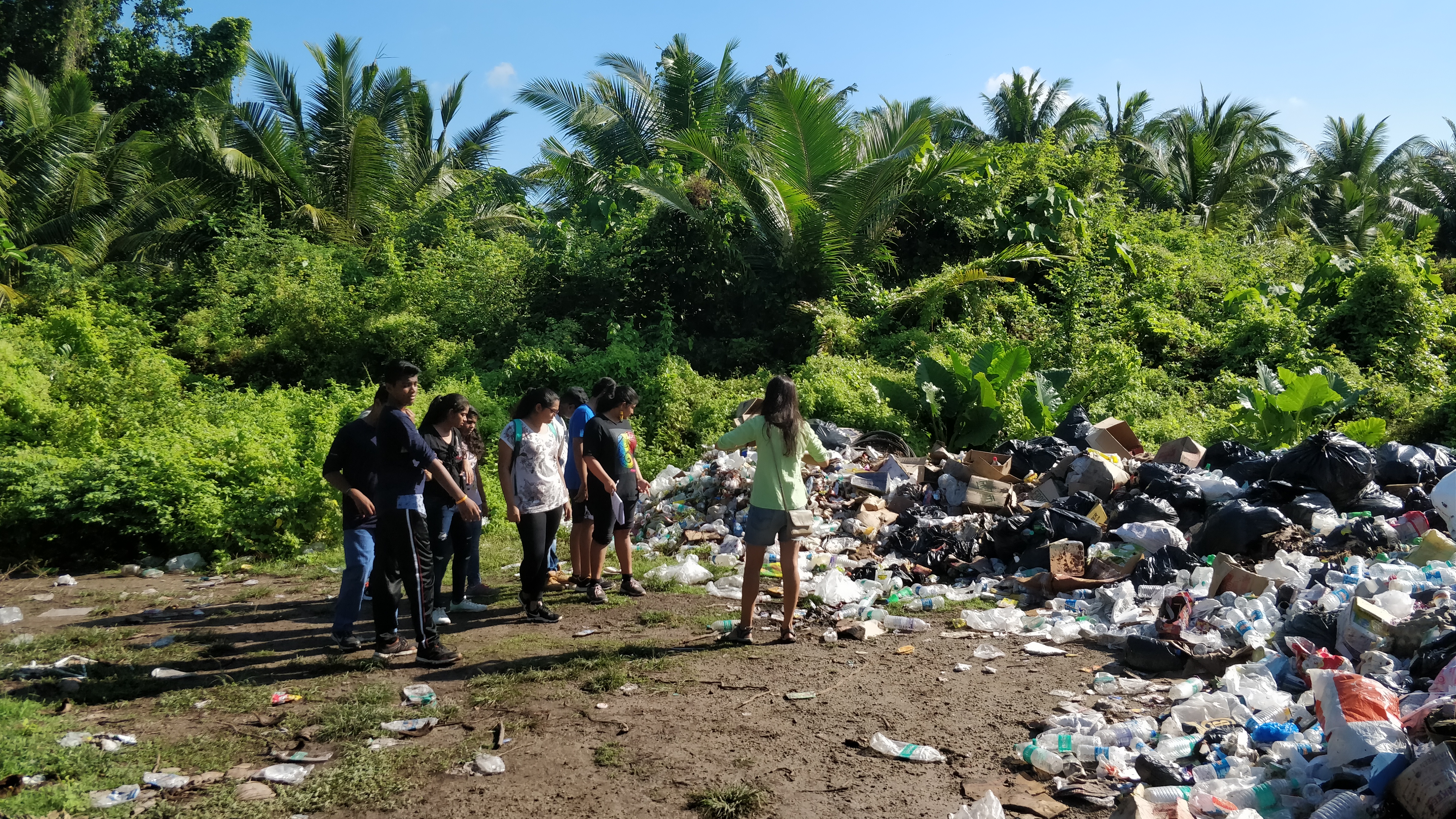
For beach cleanups, we rope in as many tourists as we can. We would like to have a model where tourists are an integral part since the waste is generated by them. Resort managements also spread awareness and encourage tourists to join the cleanliness drives, says Garima.
Speaking about one of their memorable cleanups, Shoaib Hamid, a part-time volunteer and full-time diver, tells The Better India, “We were at this forest protected area where we took a boat with us. But due to coral reefs, we could not dock the boat at the beach. So we swam and collected the trash.”
Sharing how the project progressed, Nithin RadhaKrishnan, another volunteer, says, “Starting from household surveys to beach cleanups, the waste management effort has grown to new levels. I am proud to be a part of this effort.”
Under the Kachrewaale Project, five cleanup drives were conducted, where a total of 200 kilos of trash was removed from the beaches.
Nipping Waste In Bud
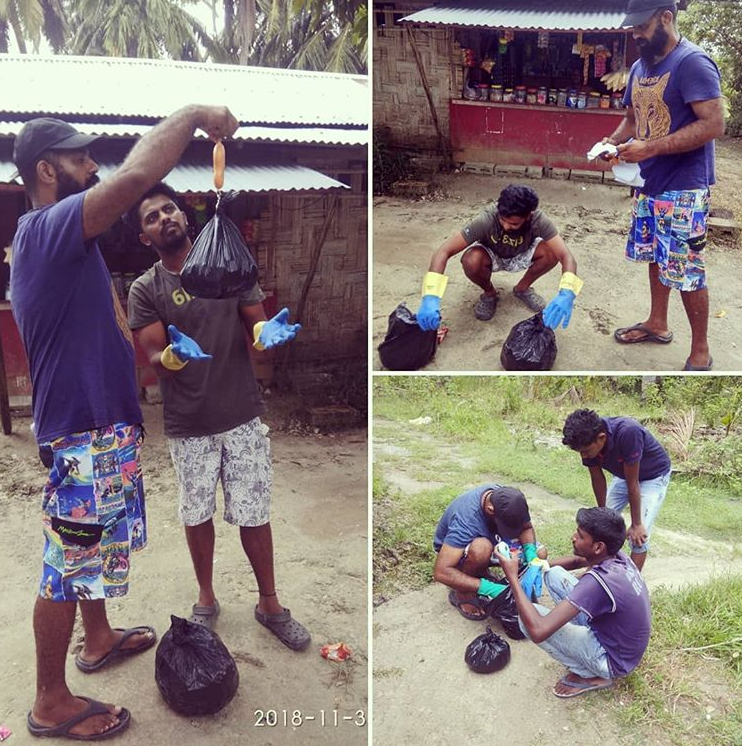
The beach cleanup mission is only one part of a huge problem, believes Garima.
In the last couple of months, the volunteers managed to convince six resorts to segregate their waste into paper, plastic, tetra paks and metal. This has resulted in sending 230 kilos of dry waste to the recycling centre in Port Blair, something that has never happened before.
We need to urgently end the harmful tide of plastic waste that is damaging the marine environment and blighting our streets. We have been working with the Kachrewaale and committed to making the Andamans litter-free. In Saheed Dweep Island, we have already started segregation of pet bottles, cans, tetra paks, and handed these over to the eco-friendly recycler, says Peter John, General Manager, TSG Hotels and Resorts.
These efforts of the volunteers have inspired the Rural Panchayat and Secretary Rural Department to extend their support.
For instance, the authorities are now planning to set up a household collection system for the locals who have no means to dispose of their waste otherwise.
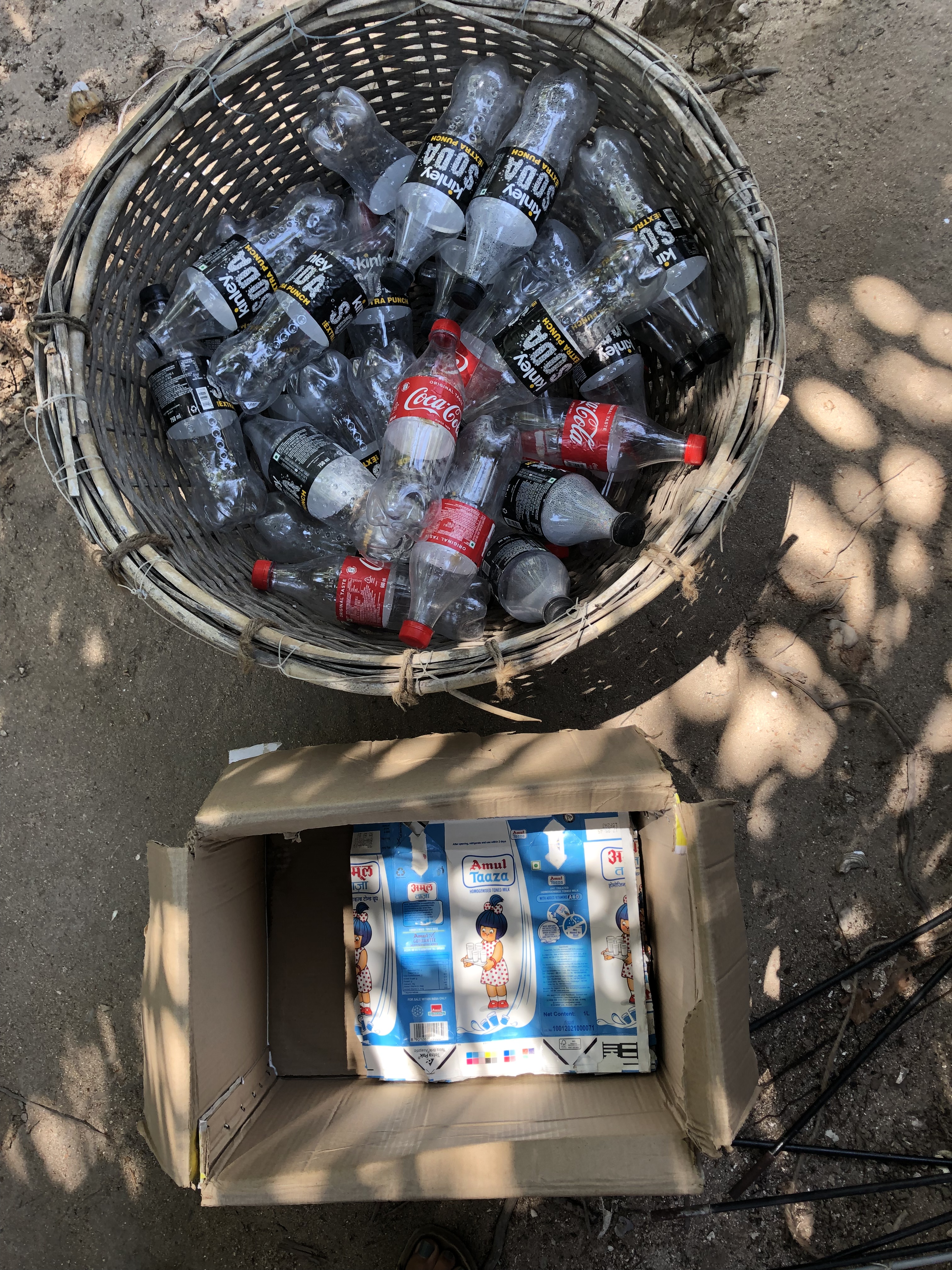
“At present, the administration has taken a keen interest in the project and is supporting it very well. Chief Secretary Chetan Sanghi is bringing all the authorities to work in unison,” says Garima.
Other organisations like the diving community, the District Legal Services Association, and the Defence Wives Welfare Association (DWWA) have also come on board.
“Port Blair-based DWWA was the first organisation that took waste for recycling. They have also helped us in conducting workshops with resort owners and managers. Their segregation project in cantonments, brainchild of Seema Verma, President, DWWA, was an inspiration for the Kachrewaale segregation protocol in resorts. Smita Ridhorkar, President, Navy Wives Welfare Association, has helped conduct some workshops with resort/hotel owners/managers,” says Garima.
Turning The Tide of Challenges
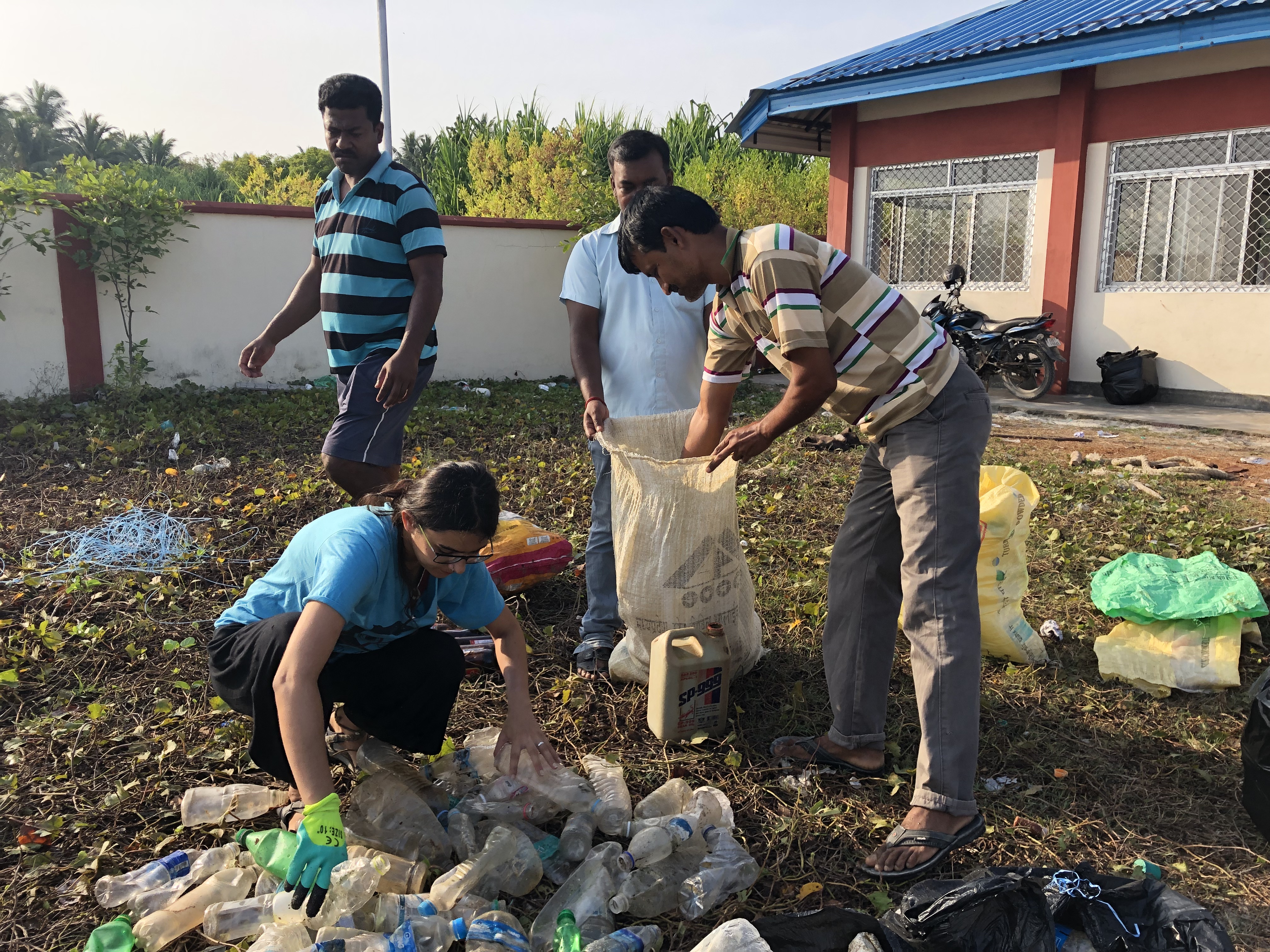
Our biggest challenge was to get the waste off the island and to the mainland. From convincing the locals that this exercise is permanent to monitoring segregation in resorts, we had to work from scratch in every arena. Thus, it will take some time for a visible impact, says Garima.
Shortage of volunteers is another issue. She elaborates, “Tourists are temporary, and we don’t want our project to fizzle out because of that. So, we are trying to take the locals into confidence. It is a long way, and we have already begun. On the bright side, I have seen a much more positive response from the local households and resort owners than I had expected. They also want to solve this problem of trash.”
The Way Forward
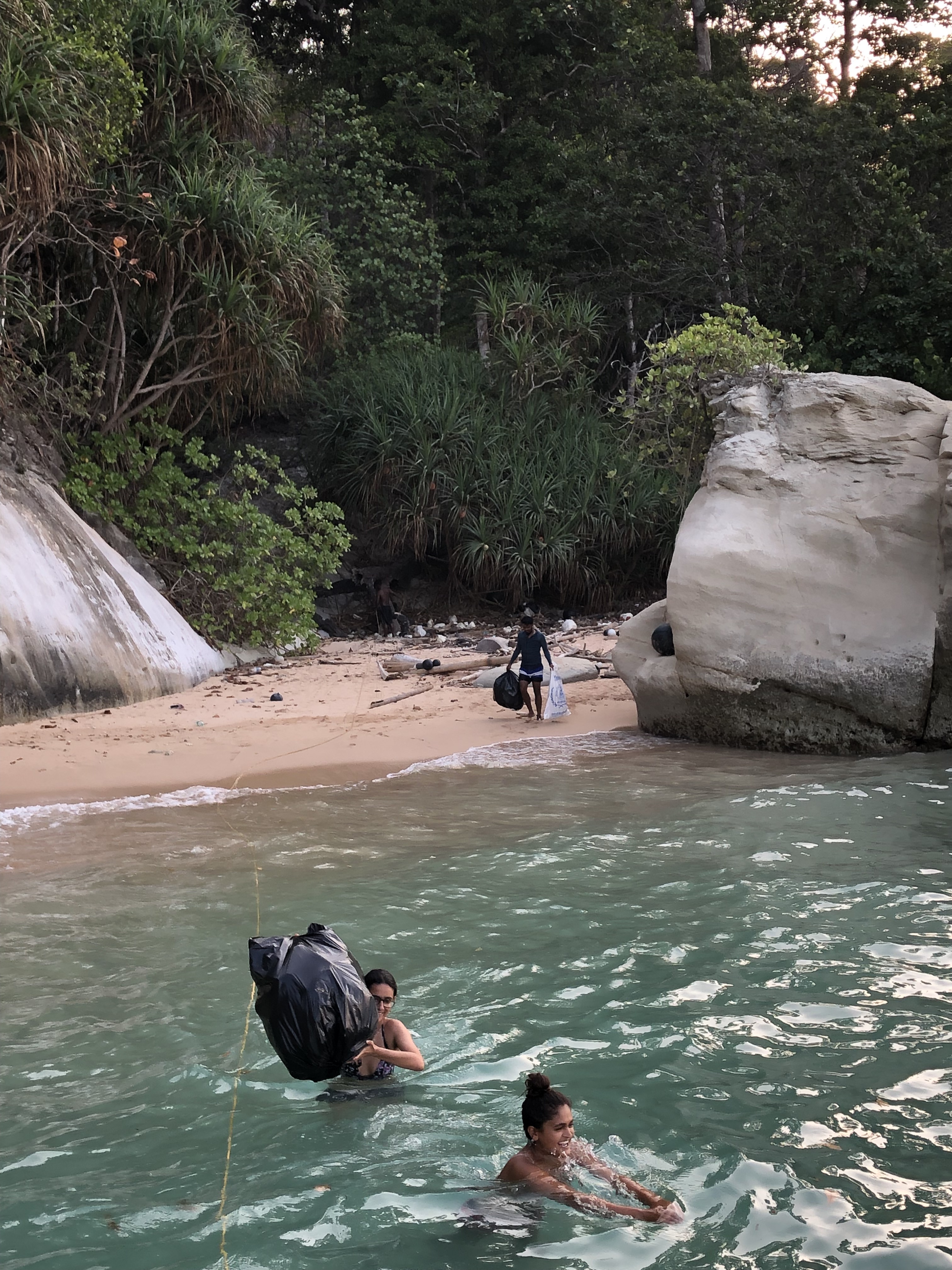
Garima and her team of volunteers want to go beyond Neil Island, and their next target is Havelock Island. She says, “We are looking at ways to reduce the generation of waste on other islands as well. We also plan to phase out plastic bottles by encouraging the use of RO-water.”
Before signing off, Garima says, “Benny was the first person to have faith in me, making it possible for me to start this work. I wouldn’t have been here without him.”
Also Read: 21-YO Mumbaikar Removes 1000+ Tonnes of Trash From Dadar Beach, Wins UN Award!
If you wish to join the Kachrewaale Project or help the volunteers, contact them here.
(Edited by Shruti Singhal)
Like this story? Or have something to share?
Write to us: [email protected]
Connect with us on Facebook and Twitter.
If you found our stories insightful, informative, or even just enjoyable, we invite you to consider making a voluntary payment to support the work we do at The Better India. Your contribution helps us continue producing quality content that educates, inspires, and drives positive change.
Choose one of the payment options below for your contribution-
By paying for the stories you value, you directly contribute to sustaining our efforts focused on making a difference in the world. Together, let’s ensure that impactful stories continue to be told and shared, enriching lives and communities alike.
Thank you for your support. Here are some frequently asked questions you might find helpful to know why you are contributing?


This story made me
-
97
-
121
-
89
-
167











